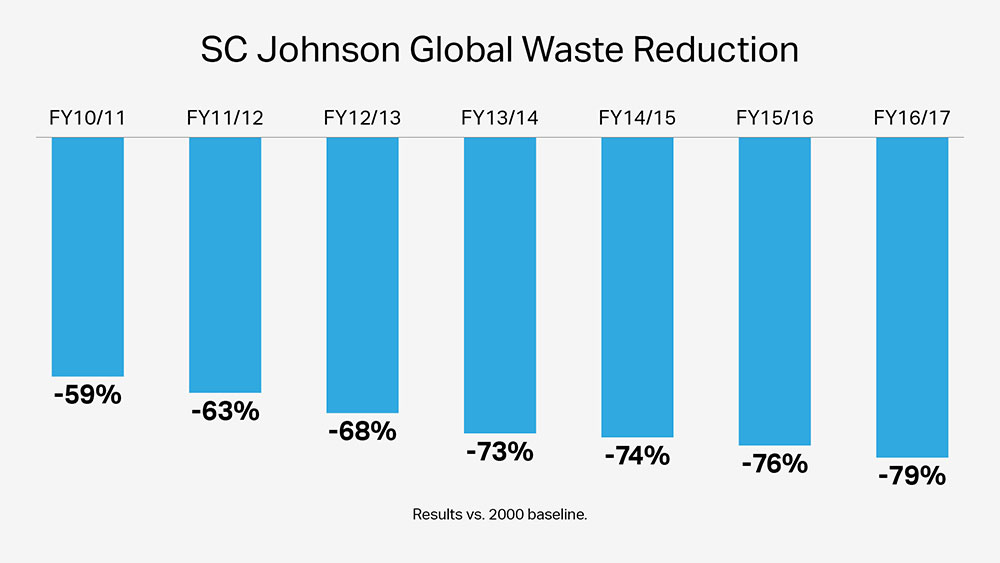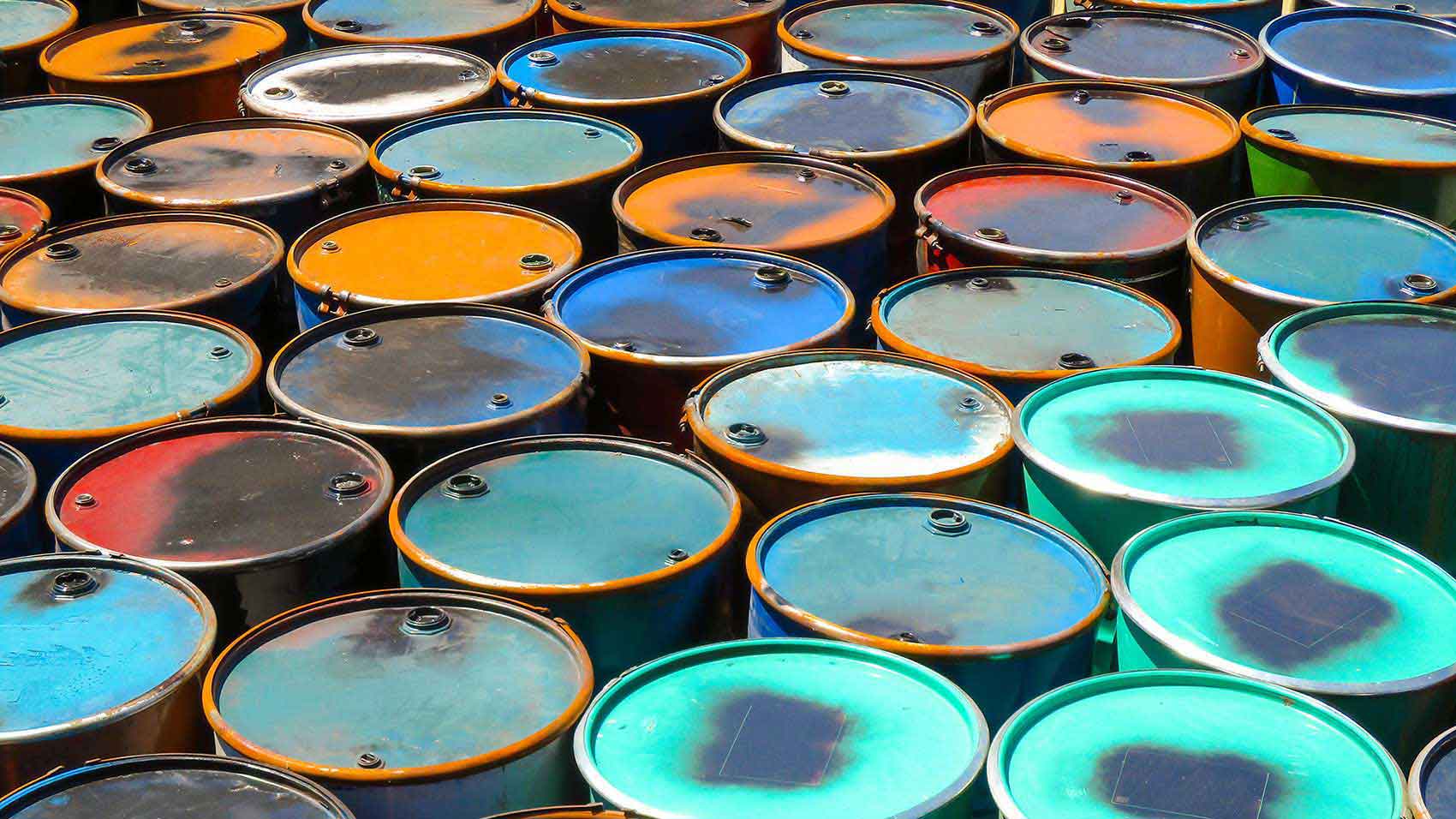Zero Waste Management: 100% of SC Johnson Factories are Now Zero Manufacturing Waste to Landfill
The World Bank projects that the amount of solid waste generated globally will nearly double by 2021, from 1.3 billion tonnes to about 2.2 billion tonnes of solid waste per year.* That’s a legacy we don’t want for the landfills of today or for future generations.
At the close of 2018/19, we completed our commitment and 100% of our factories sent zero manufacturing waste to landfills.
Zero Waste Manufacturing: Doing More with Less
Since 2000, we’ve been working to reduce global manufacturing waste from SC Johnson facilities. We try to eliminate waste before it’s generated, and to redirect waste that does occur for more environmentally responsible use.
Our goal was to cut global manufacturing waste by 70% by 2016, and we reached that target three years ahead of schedule.

Getting to Less Waste with Resourceful Resolutions
Not that reducing waste is easy. It takes observation and innovation, which is delivered by our “Green Teams” around the world.
These teams help monitor and improve our sustainability practices, as well as educate about sustainability opportunities by suggesting process changes in everyday operations.
Here’s just one example: Our manufacturing plant in Indonesia gets materials in large metal drums. Once used, those drums were being crushed and incinerated, resulting in thousands of pounds of waste a year.
The local team saw this as an opportunity for change and came up with a plan. Instead of incinerating the drums, we would partner with a local recycling company to refurbish them. They could then be used in recycling and trash collection in the open market.

I’m proud of the hard work of SC Johnson people at our manufacturing plants all around the globe who have stepped up to help protect the environment for future generations.
Fisk Johnson, Chairman and CEO of SC Johnson
Nearing Zero Landfill at SC Johnson Factories
In 2017, Jeddah, Saudi Arabia, became one of six SC Johnson manufacturing sites that successfully achieved zero manufacturing waste to landfill status.
Our sites in Toluca, Mexico; Ho Chi Minh, Vietnam; Rosslyn, South Africa; Kiev, Ukraine; and Nairobi, Kenya, went a step further in 2017 and reached zero waste to landfill status – sending no waste at all, including waste from cafeterias and office buildings, to landfill.
We accomplished our 2021 goal of sending no waste to landfill at the close of 2018/19. Years ago, five SC Johnson sites were zero manufacturing waste to landfill. Today, all 25 sites are zero manufacturing waste to landfill and 21 of those sites are zero waste to landfill.
Solutions are rarely one size fits all. That’s why the Green Teams are empowered to find solutions that fit the unique requirements at each site. They have to be ready to adapt to the environment and to make the best, most sustainable choices for the situation at hand.
Some sites compost food waste to be used for landscaping. At others, wastewater is treated for use as fertilizer in parks and other natural spaces.
In Nairobi, Kenya, for example, it’s not that common for people to segregate waste, because recycling and the infrastructure required are not widespread. But the SC Johnson people there learned about the benefits of waste management and how to properly separate the company’s waste, and now the site is zero waste to landfill.
In Our Environmental Policy, Zero Means Zero
Companies often define zero waste to landfill in different ways. For us, “zero means zero,” and we have a strict definition. A site must sustain zero waste to landfill for a set period of time before being named as such.
Some companies may claim “zero waste” with an asterisk and a footnote, indicating they may permit small percentages of waste to go to landfill when it could have been diverted otherwise. We don’t.
This also means municipal waste treatment only contributes to achieving zero waste at SC Johnson if that waste is directed for composting or methane conversion. (We do make an exception for biohazard, medical or certain types of hazardous waste, a small fraction of our total global waste, since local legislation may require special disposal of it.)
We’re serious about this. For the sake of people and the planet, we’ll keep working every day to use resources wisely and conserve for the future. It’s the least we can do for your children and ours.
* World Bank (2012) What A Waste – A Global Review of Solid Waste Management (Urban Development Series: Knowledge Papers). Chapter 3.